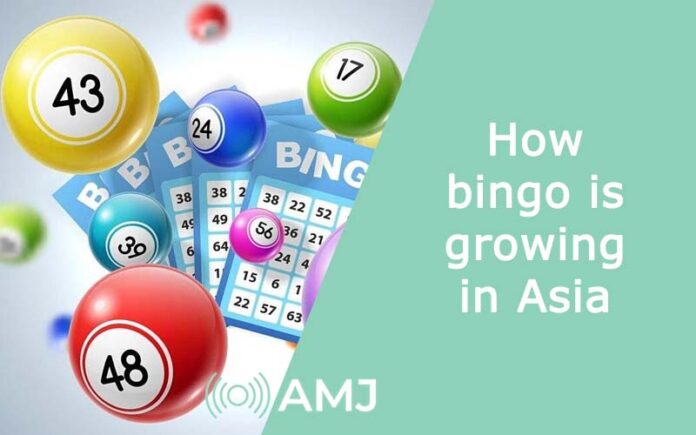A game combining social connection with the thrill of bingo is a popular and well-loved pastime around the globe. Now with the development of the online version of the game, playing bingo is even more accessible to wide audiences.
One location that has seen a huge rise in the number of bingo players over the last couple of decades in Asia. However, while some Asian countries such as Japan have really embraced the game, others such as China face barriers like prohibitive legislation and social trends.
We take a look at the origins of this wonderful game and explore how it is gaining popularity across the Asian continent.
The origins of the game bingo
The game bingo is believed to have originated in Europe some time during the 16th century, with evidence to suggest that it was derived from the lottery known as Il Gioco del Lotto d’Italia in Italy. While the Italians thoroughly enjoyed this early version of bingo and it spread rapidly throughout the country, it was not until the early 18th century that travellers helped bring bingo to the rest of the continent of Europe and over to the United Kingdom.
In France, the game was known as Le Lotto from the 1770s and particularly popular amongst the wealthier class of French men. Immigrants from the United Kingdom introduced the game to their US counterparts in the early 1900s.
During this time the game was called Beano, this name was based on the fact that it was played using dried beans, stamps made of rubber and cardboard. It was most often played by attendees and fairs and carnivals.
The version of bingo that we are more familiar with in the modern day was popularised by Edwin Lowe in the 1920s, he adapted the game to have a 5 x 5 grid and used letters to label the columns. He also gave it the name bingo after hearing a player shout “Bingo!’ rather than “Beano!”
It wasn’t until decades later that cash prizes for the game became popular as countries introduced legislation that supported gambling. Bingo halls started to emerge in the United Kingdom in the 1960s following the rollout of the 1960s Betting Act.
Bingo halls are still popular in the UK today, you can find them in most towns and cities. They are considered to be a great entertainment space and ideal place to socialise with friends and other locals.
By the 1990s, the World Wide Web was becoming accessible to the general public and games such as bingo were being reimagined for the web.
In the modern day, there are hundreds of websites offering online bingo games. To play, all users need is access to internet-enabled devices such as a smartphone, laptop or tablet. These sites are able to replicate the social experience through the use of online chat rooms that encourage players to communicate with one another, while giving them the convenience of being able to play 24/7 from home.
Japan was a bit of a late adopter
Eventually, bingo found its way from Europe to the Asian continent. In the early 1920s, Dai Nippon, a printing company, started to design, make and sell bingo cards in Japan. While it did take off in some circles, it wasn’t until the commencement of online bingo that it became a hit in the country.
There are now more online bingo players in Japan than any other country, other than the United States. Japan even holds the record for the most players in a single game, with 500,000 players tuning in to play one game. The 75 ball variant of bingo is the game of choice for Japan.
South Korea enjoys bingo too
In South Korea, despite its prohibitive stance on casino bingo has found popularity there too. Koreans enjoy playing on offshore online bingo sites and due to high adoption rates for tech devices like smartphones, they are easily accessible.
Over in the Philippines, at special events such as birthday parties and wedding parties bingo is often enjoyed by guests. They play cash games and refer to it as Housie.
China is yet to see a thriving bingo market
By contrast, the bingo market is almost non-existent in China. While there is a big casino scene nearby in Hong Kong and Macau, in China all related activities are strictly prohibited and therefore there has been little traction for it to gain popularity there.
Nevertheless, certain state lotteries have been sanctioned in the region and even a couple of bingo halls are being trialled.
What can we expect for the future of bingo in Asia?
We can anticipate that online bingo will continue its upward trend in popularity, particularly where it is well loved in Japan. It also seems that China could begin to see a small player base emerge as more people discover and fall in love with the game.












![Index of Money Heist [Season 1, 2, 3 & 4 – All Episodes, Cast and Plot] Index of Money Heist](https://www.asiamediajournal.com/wp-content/uploads/2021/05/Index-of-Money-Heist-3-100x70.jpg)